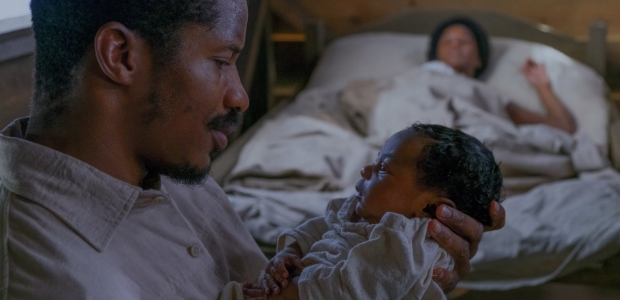History favours the brave, but like any form of art, it is also about perception. Whether that perception is a result of inner expression or manipulated by external influences, what matters is the manner in which it is told. Bold, controversial and violent, The Birth of a Nation is a period drama that is as powerful as it is important. Most of all, this film functions as a cinematic memorial to one of the first freedom fighters that would eventually give rise to the American Civil Rights Movement.
His name was Nat Turner and although not shown in the film, he received the same fate as the fictionalized William Wallace (who was famously portrayed by Mel Gibson in Braveheart). Played by Nate Parker in his directorial debut, Nat is a slave with compassion for his fellow slaves. He is also in good standing with his master Samuel Turner (Armie Hammer) but the latter has problems of his own, including mounting debts and alcoholism. They were friends since childhood and Samuel’s mother was the first to notice Nat’s incredible ability to read (this was a time when literacy was considered a gift, and rare even for white landowners). With this ‘ability’ Nat is allowed to preach the Bible to other slaves with the intention of putting the fear of God into them. It works for some time, until Nat witnesses the ugly and often heinous atrocities of slavery. The inevitable happens when Nat perceives scripture as a double-edged sword – that which justifies slavery and that which justifies retribution.
Based on the actual 1831 salve rebellion in Virginia, and co-written by Parker, The Birth of a Nation is a slow burner during its first two acts. Visual artistry notwithstanding, Parker’s nuance is the cogs and wheels turning in Nat’s head. Did he snap or was he disillusioned by his own sermons? Although the result is an explosive finale that is both brutal and disturbing, the answer to that question lies in the way Nat is perceived. With collateral damage on both sides, history has all but condemned Nat Turner as a mass murderer, much like what English history says about Scottish freedom fighter William Wallace. But the director has us believe otherwise; that Nat was more like a hero whose actions influenced a far bloodier war 30 years later in the emancipation of slavery, and hence the title.
Yet at its core, this film is a penetrating enquiry into the ongoing struggles for justice and equality, the fine line between the use and abuse of authority, and also whether the history taught today is factual, or eroded, or sanitised. Whether Nat lost his faith or manipulated scripture to justify his rebellion is of little importance because The Birth of a Nation is competently made and told with grit. Like Steve McQueen’s relentless 12 Years a Slave before, the theme on dehumanisation is rampant and doesn’t let go even during its most harrowing moments. Even so, Parker’s narrative may not be as flawless as McQueen’s Academy Award winning masterpiece but it’s still an effective undertaking for a debut director; And given the racial uproar behind the new Trump administration, perhaps even a well-timed film that takes a stab at a challenging dilemma – intention versus action.
Rating: 




